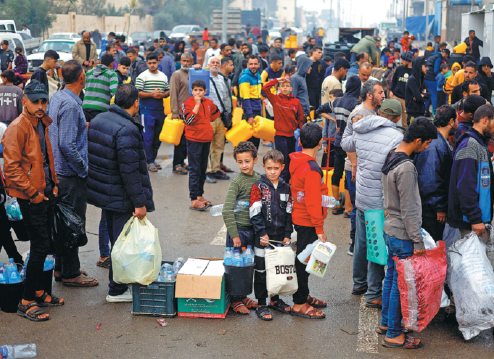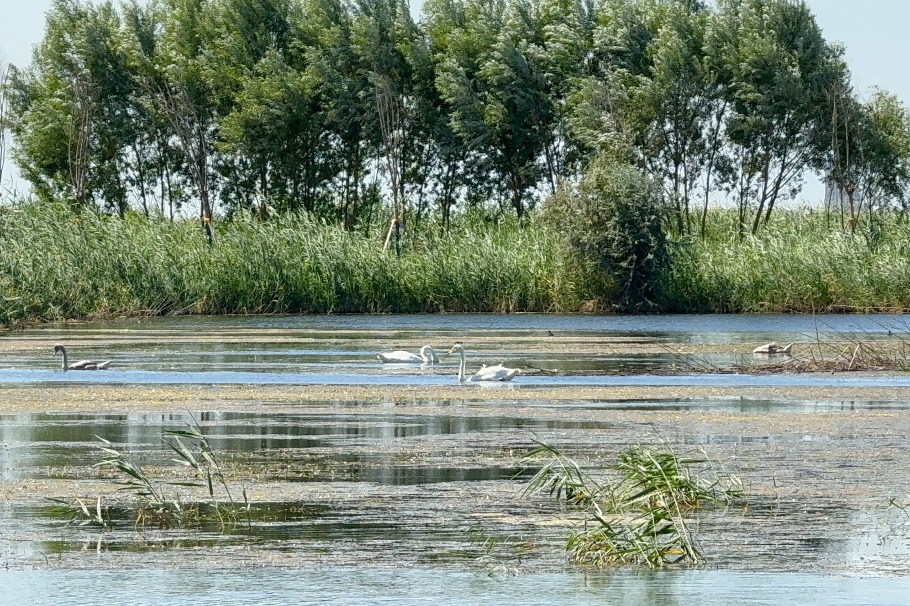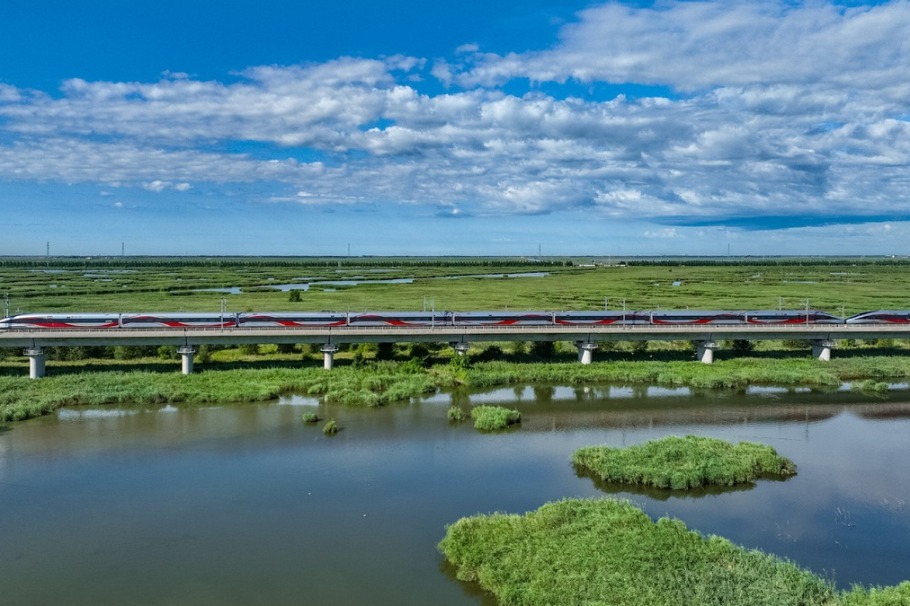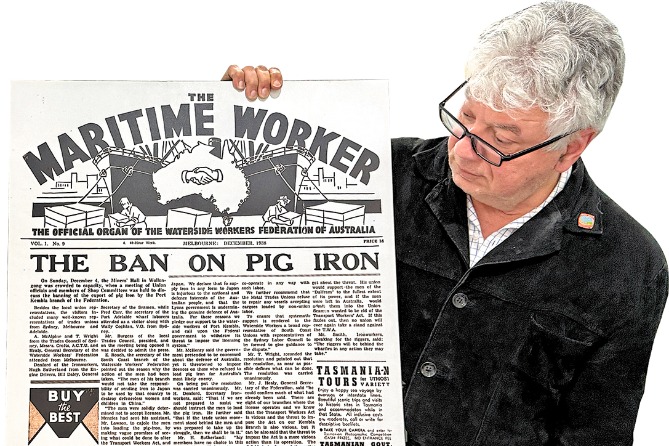Israel mounts fiercest attacks so far in Gaza
Southern city Khan Younis encircled in bloody new phase of 2-month conflict

GAZA STRIP — Israeli forces were encircling southern Gaza's main city on Wednesday, battling Hamas militants through streets and buildings in the most intense combat of the two-month conflict.
The focus of the conflict has shifted into the besieged territory's south following fierce fighting and bombardment that reduced much of the north to rubble and forced nearly 2 million people to flee their homes.
Israeli tanks, armored personnel carriers and bulldozers were seen near Khan Younis, forcing already displaced civilians to pack up and flee again, witnesses said.
"Our forces are now encircling Khan Younis. We have secured many Hamas strongholds in the northern Gaza Strip, and now we are operating against its strongholds in the south," Israel's army chief Herzi Halevi said.
"We're moving ahead with the second stage now. A second stage that is going to be difficult militarily," government spokesman Eylon Levy said.
Israeli Prime Minister Benjamin Netanyahu said on Tuesday the military would have to retain open-ended security control over the enclave long after the conflict ends. His comments suggested a renewed direct Israeli occupation of Gaza, something the United States said it opposes.
Netanyahu said only the Israeli military can ensure Gaza remains demilitarized. "No international force can be responsible for this," he said at a news conference. "I'm not ready to close my eyes and accept any other arrangement."
Israel's assault in retaliation for Hamas' Oct 7 attack has killed more than 16,240 people in Gaza — 70 percent of them women and children — with more than 42,000 wounded, according to the Health Ministry in Gaza.
The past days brought some of the heaviest bombardment of the entire conflict, the United Nations' humanitarian affairs office OCHA said.
Panic, fear and anxiety
In the central Gaza town of Deir al-Balah, just north of Khan Younis, a strike on Tuesday destroyed a house where dozens of displaced people were sheltering. At least 34 people were killed, including at least six children, according to an Associated Press reporter at the hospital who counted the bodies.
Gaza has been without electricity since the first week of the conflict, and Israel has severely limited fuel imports, forcing several hospitals to shut down.
Israel had previously told civilians in the north of the densely populated strip to seek shelter in the south of the territory, with many fleeing to Khan Younis believing it would be safer.
But as the conflict expands, Israel has told people to move even further south, sparking "panic, fear and anxiety", Philippe Lazzarini, head of the UN agency for Palestinian refugees UNRWA, said.
The enclave is more densely populated than London and he said people were being pushed into an area that is less than one-third of the Gaza Strip, with roads to the south clogged.
International aid groups have condemned the succession of orders to flee from one area to another, saying that civilians were running out of options.
"Nowhere is safe in Gaza," the UN's humanitarian chief Martin Griffiths said.
"Not hospital, not shelters, not refugee camps. No one is safe."
Following demands to create areas where civilians could shelter, Israel's army published a map it said was intended to enable Gazans to "evacuate from specific places for their safety if required".
But the UN criticized the map on Tuesday, saying it was impossible to create safe zones within Gaza for civilians to flee to.
"The so-called safe zones ... are not scientific, they are not rational, they are not possible, and I think the authorities are aware of this," James Elder, spokesman for the UN children's agency UNICEF, said.
The conflict has sparked fears of a wider regional conflict, with frequent exchanges of fire with Hezbollah militants across Israel's border with Lebanon.
The occupied West Bank has also seen a surge in violence.
Israeli troops raided Faraa refugee camp in the north of the territory early on Wednesday, sparking clashes that killed two people. The latest deaths added to more than 250 people killed in the West Bank since October, according to Palestinian authorities.
Meanwhile, the US said on Tuesday it would refuse visas for extremist Israeli settlers who attack Palestinians, stepping up pressure to curb a wave of violence in the West Bank during the conflict.
The measures amount to a rare concrete repercussion by the US against Israelis in the conflict, in which President Joe Biden has nudged the US ally on protecting civilians, but also promised strong support.
Agencies Via Xinhua

Today's Top News
- No reason for Germany to let political expediency hurt relations with China
- Book on Xi's views on strengthening, revitalizing armed forces published
- China supports Ukraine peace talks between all parties
- China to hold press conference on military parade preparations
- Vast gap has to be bridged for peace to arrive in Europe
- AI powering China's industrial evolution





























